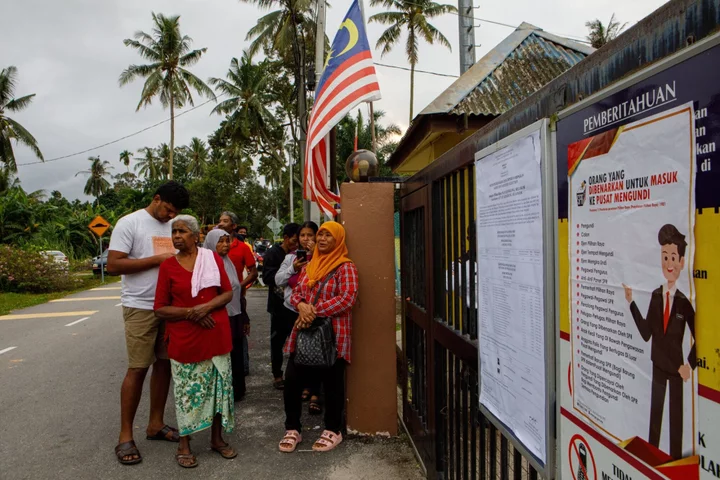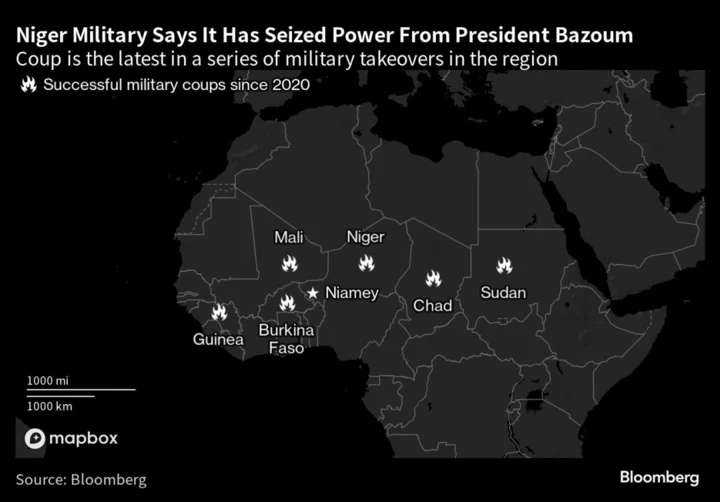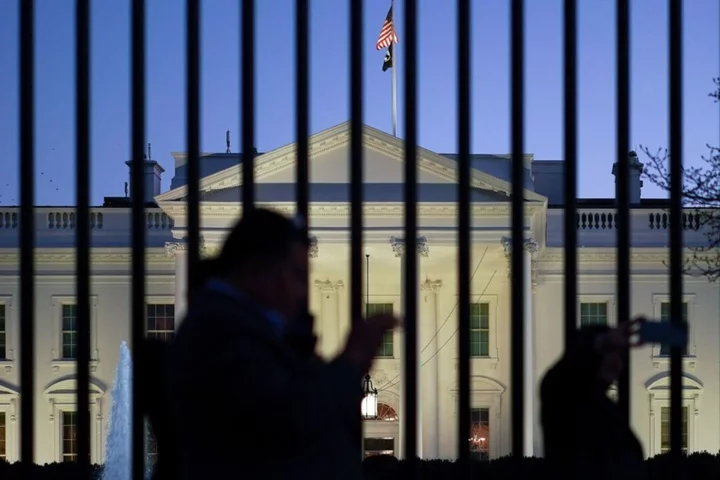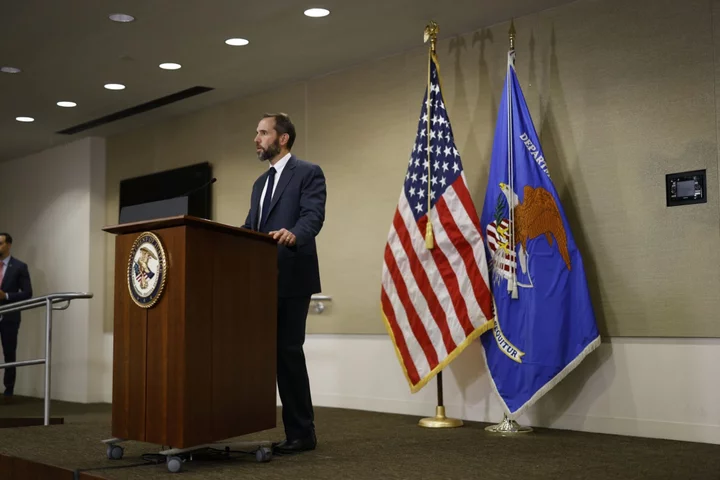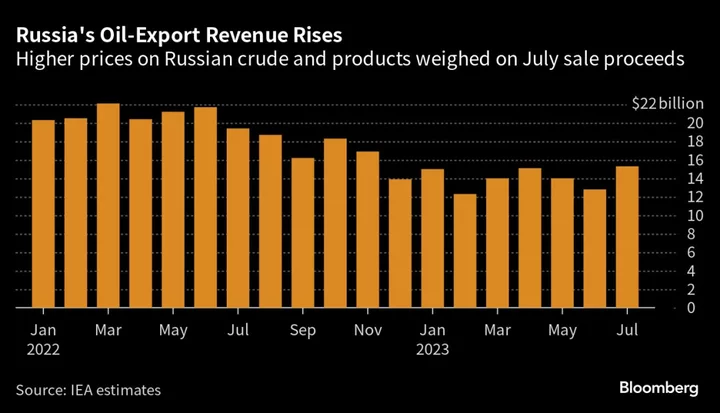Malaysia’s ruling coalition held on to three of six states contested in provincial elections Saturday, providing Prime Minister Anwar Ibrahim with breathing space nine months into his mandate.
The polls resulted in an even split between parties in Anwar’s unity government and his rival, the pro-Malay Perikatan Nasional, with each bloc winning the three states they controlled before the vote, the Election Commission said early Sunday. This was in line with predictions by pollsters Merdeka Center and Ilham Centre.
“For the unity government, I would like to give my assurance that it remains strong and firm after these elections,” Anwar said at a press conference late Saturday, flanked by his allies. “We will continue to work hard and serve, in line with our aspirations to develop the country and economic policy that we announced recently.”
The state elections marked Anwar’s biggest popularity test since he assumed power last November with the support of rivals-turned-allies Barisan Nasional and regional blocs. While it has no direct impact on parliament’s composition, any setback in Saturday’s polls risked prompting Barisan Nasional to reassess its ties with Anwar, keeping in motion the revolving door of prime ministers the nation has seen since 2018.
After two weeks of campaigning that saw Anwar appearing in up to three political rallies a night, the ruling coalition retained its super-majority in the nation’s top exporting areas of Penang and Negeri Sembilan on the Southwest coast. The bloc also won Selangor, the country’s most industrialized state, but failed to defend its two-thirds control of Selangor due to inroads made by the conservative Perikatan Nasional alliance.
Perikatan Nasional won most, if not all, of the seats in the Malay-majority states of Kedah, Kelantan and Terengganu, prompting its chairman and former premier, Muhyiddin Yassin, to declare that the result was a sign that the people want change.
The gains made by Perikatan Nasional at the expense of Barisan Nasional and its lynchpin the United Malays National Organisation indicate the federal government’s internal woes may not be entirely over.
Anwar’s Future as Malaysian PM Hinges on Winning Local Polls
“The result is an extension of what took place in the last general election, and shows a certain rejection of Barisan Nasional and UMNO,” said Khoo Ying Hooi, associate professor at the Department of International and Strategic Studies, University Malaya. This would put a lot of pressure on the partnership between Anwar’s parties and BN, but “having said that, I believe this unity government will still stick together as they are working partners at the federal level,” she said.
Anwar’s government must now work on bridging the political divide, resolving structural economic issues, and being responsive to the immediate needs of the people, according to Amir Fareed Abdul Rahim, director of strategy at political risk consultancy KRA Group. “Success in turning around the economy will improve its standing,” he said.
Malaysia’s economic growth is set to moderate to between 4% and 5% in 2023, as it feels the effects of a global slowdown. Anwar’s government has proposed a slew of policies to resolve longstanding issues such as stagnant wages, and blanket subsidies that were weighing on federal coffers.
“The political noise will continue, but the unity government must keep focused on governing to stem a potential erosion to its political authority. It has won some breathing space although political and policy challenges still loom, and must make full use of this opportunity,” said Amir.

